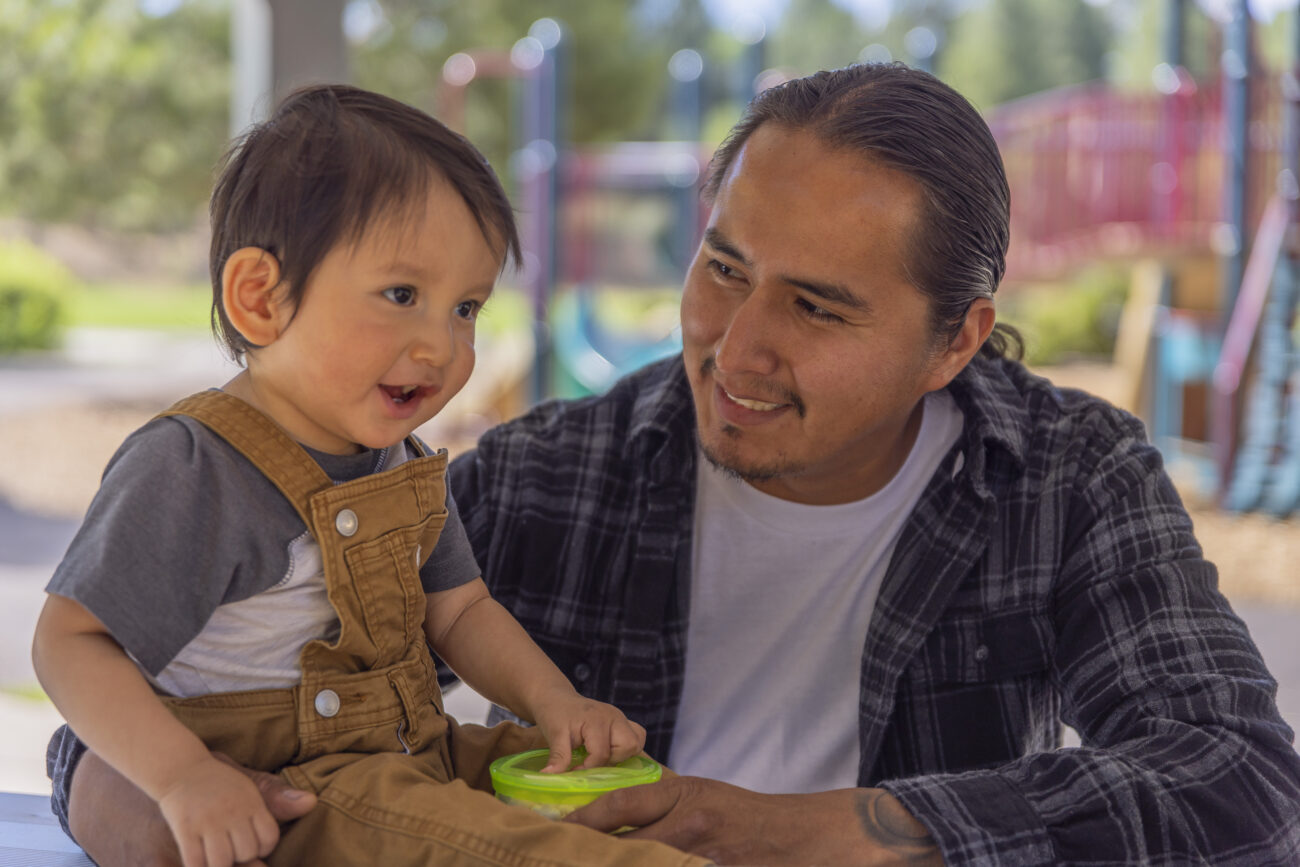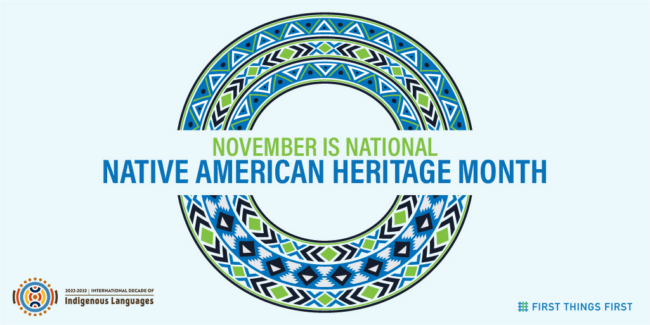
Partnerships with Indian tribes and nations in Arizona
The work of First Things First (FTF) is rooted in a profound respect for tribal sovereignty and a commitment to collaborating with tribes in Arizona to ensure young children entering school in tribal communities are healthy and ready to succeed.
Federally recognized tribes decide how they want to participate in the regional structure of FTF. Tribes can elect to have their lands designated as a separate First Things First regional partnership council—a tribal region—or they can elect to participate in the designated FTF region or regions in which their tribal lands are located. FTF acknowledges each tribe in Arizona’s right to self-governance, including their choice to become their own FTF region or not. In addition, every FTF regional partnership council whose designated geographic area includes Tribal lands must have at least one Tribal representative.
Funded Strategies
- Family support, including home visitation programs for parents with newborns;
- Early language and literacy development, including native languages;
- Nutrition assistance and obesity prevention;
- Health screenings and outreach about health insurance; and,
- Improving the quality of early education, including scholarships to enhance the professional skills of teachers.
Tribal Regions
Tribes who elected to have their lands treated as a separate region:
- Cocopah Tribe
- Colorado River Indian Tribes
- Gila River Indian Community
- Hualapai Tribe
- Navajo Nation
- Pascua Yaqui Tribe
- Salt River Pima-Maricopa Indian Community
- San Carlos Apache Tribe
- Tohono O’odham Nation
- White Mountain Apache Tribe
Regions Affiliated With Tribes
Tribes who elected to participate in the designated FTF region(s) in which their lands are located:
- Coconino including Havasupai Tribe, Hopi Tribe and Kaibab Band of Paiute Indians
- Gila including Tonto Apache Tribe
- La Paz/Mohave including Fort Mojave Indian Tribe
- East Maricopa including Fort McDowell Yavapai Nation
- Pinal including Ak-Chin Indian Community
- Yavapai including Yavapai-Apache Nation
- Yuma including Quechan Tribe
Through government, tribal, organizational, and cultural partnerships, FTF works hand in hand with tribal communities to strengthen early childhood systems, expand access to quality programs, and ensure services reflect the unique values and priorities of each Nation.
Government Relations
FTF supports strong government-to-government relationships by:
- Respecting and honoring the sovereignty of the tribes.
- Consulting with tribal governments to ensure concerns and impacts are carefully considered before FTF takes action or makes decisions affecting tribal communities, as outlined in the FTF Tribal Consultation Policy.
- Ensuring ongoing communication with tribal governments and tribal partners by responding to requests for information and providing technical assistance as it relates to the work of FTF.
Tribal Relations
FTF builds collaborative partnerships by:
- Working with tribal partners, such as other state agencies, the Inter Tribal Council of Arizona and the Indian Health Service, to provide information and resources.
- Facilitating partnerships and educating both the public and private sectors on FTF programming in tribal communities.
Organizational Relations
FTF strengthens internal understanding and collaboration with tribal communities by:
- Advising FTF officials on tribal perspectives regarding FTF policies and programs.
- Formulating and recommending policies and FTF programs and funding initiatives impacting tribes.
- Developing and fostering effective communication and collaboration between FTF staff and staff members from tribes and nations.
- Training FTF staff and others in the area of tribal relations through ongoing comprehension education.
Cultural Relations
FTF supports culturally grounded early childhood programs by:
- Identifying tribal considerations in the development of policy, program and funding initiatives impacting tribal communities.
- Providing training to FTF grantees and partners who provide services in tribal communities.





